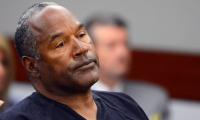A short walk from DHA Phase-VI’s Nishat Park, the unlocked door of a small basement with a poster stating ‘Hum Mein Se #Aik,’ greets visitors. This is the election campaigning hub of Jibran Nasir, who is once again contesting independently from Karachi.
A prominent face at the helm of many a protest outside the Karachi Press Club, advocating for human and minority rights among countless other causes, Nasir has vowed to raise issues such as sectarian violence, extrajudicial killings and enforced disappearances in the Parliament.
Along with other points on his mandate, he would be seen vying for a seat in the constituencies of NA-247 and PS-111. However, Nasir is not the only contestant talking about issues otherwise swept under the carpet.
Another independent candidate and human rights activist, Rashid Rizvi, has come forward with a mandate that primarily focuses on safeguarding the right to practice religion by every member of the society without the fear of being labeled as a ‘Kafir’.
Rizvi, who is contesting from NA-254 and PS-125, has come to become the voice for many Shia families still awaiting the return of their loved ones, who have fallen prey to enforced disappearances in the last two years.
The power of one
Commenting on a popularly held belief that one person alone cannot do anything, Nasir is of the view that people need to change this attitude. “If we assume that I get elected and I become a part of the opposition, the strength of the opposition cannot be disregarded,” he said.
Nasir mentioned that the primary purpose of an opposition is to identify problems and if that had been done in the provincial assembly, it would have raised certain awareness among the citizens.
He said it was time to move away from populous slogans and elect representatives who can be called out by the people who voted for them.
“I think people would vote for me because they have seen the performance of other political parties and they are disappointed in them,” he said. “I have stood by the oppressed without holding any political office and people have responded to the issues I raised because the youth is tired of politicians resorting to personal attacks instead of addressing them.”
Rizvi echoes Nasir’s views and stressed that he too wants to strengthen the movement from within the assembly rather than from the outside. “We have protested everywhere but do we want to be referred to as mere protesters, who at times feel powerless when so many families ask for help,” he questioned.
“I may not agree with his politics but taking the example of Sheikh Rashid, we know that even one person can give a tough time to those in power,” Rizvi added.
Atypical narratives
Two years ago, Rizvi began raising his voice for the missing persons in the Shia community of Karachi, which gained the support of other cities as well.
Rizvi, who hails from Hyderabad, has been living in the city by the sea for the past 10 years and has accumulated the support of activists based on his efforts to recover innocent men who have been picked up allegedly by the authorities. He claims that some 140 Shia men have been missing from the country -- more than 30 of them belonging to Karachi, adding that 20 have returned safely as a result of the protests.
“I stood up for this cause because of the deafening silence around the issue,” he said. “The two main political fronts for the Shia community, Shia Ulema Council (SUC) and Majlis-e-Wahdat-e-Muslimeen (MWM) have been unsuccessful,” he added.
Rizvi felt that they too are under pressure as the threat of being outrightly banned looms over them because of addressing issues that do not sit well with the state. “I had their support when we organised a long march last year but gradually, within a few months, I was deserted because of the threats being received by the organisation,” he said, adding that while it may seem like a setback, it resulted in more support from the people in the community.
He said that the mistrust in the Shia community with regards to these organisations, based on unpopular decisions taken after major terrorist attacks on Shias in Parachinar and Quetta, leaves people no choice but to rise up and speak for their rights. “There are 19 candidates from banned outfits contesting in this year’s elections but none of the Shia leaders are challenging them,” Rizvi lamented.
“They have formed an alliance with others as part of Muttahida Majlis-e-Amal but we need to realise that our issues would not be resolved once those candidates make it to the assemblies for they would translate their own hate and bigotry into laws,” he feared.
Rizvi added that he has filed a petition against the nomination of Aurangzeb Farooqi, leader of the banned Ahle Sunnat Wal Jamaat, but it was rejected. He expressed his disappointment at the fact that no lawyer is willing to represent him due to the fear of being harmed.
Nasir, too, feels that the state must understand issues that affect national integration. “We need to bring certain issues to the mainstream because they are directly linked to our national identity,” he said. “Nobody has ever raised their arms against the state due to unavailability of water nor have people ever blown themselves up because of the state’s attitude towards environment conservation.”
He added that the state has paved the way for insurgencies as a result of extrajudicial killings and enforced disappearances.
“The relationship between state and residents is based on loyalty. If the state agrees to provide security to the citizens then they also respect the state; it’s a two-way communication but right now there is no communication whatsoever,” he explained, adding that we are sowing the seeds of hatred in our future generation.
Speaking on the decision to lift the ban on Ahle Sunnat Wal Jamaat and unfreezing assets of Ahmed Ludhianvi, Nasir speculated that the caretaker government may not have played an important role in this regard.
“We will take this matter to the court because we want to learn of the alteration in the mandate of the party [ASWJ], which led to this decision. As far as unfreezing of assets is concerned, it is inconsequential as their leaders were travelling the globe despite being on the list,” he claimed.
Nasir said he would like to see the number of MPAs or MNAs who would raise their voices to call out representatives like Ludhianvi and Khadim Hussain Rizvi, the chief of Tehreek-e-Labbaik Pakistan. “Birds of a feather flock together. Would the assembly members question National Counter Terrorism Authority and Interior Ministry on Sipah-e-Sahaba,” he questioned.
“Activism must not be separated from politics. We need to move away from idealism otherwise we will be restricted to holding seminars in hotel lobbies,” he warned.
Other issues in the constituency
Speaking about the issues faced by the residents in his constituency, Nasir feels that they are not restricted to DHA alone.
“The residents of DHA raise their concerns regarding water distribution but they are still able to afford water tankers worth Rs5,000 to be used for their lawns while in the same constituency, people living in a colony cannot raise Rs5,000 for basic needs,” he exclaimed.
“There are industries that can recycle water but any surplus water is being sold for a profit so my immediate concern would be to work on the quality of water and ensure its accessibility for the people to go about their daily routines instead of it being wasted on the residents’ lawns,” Nasir said.
In a 90-degree view of his constituency, one can see a high rise and a flyover while underneath it, homeless people sleep on pavements. “As you can see, my constituency is not confined to one socio-economic group,” he said, adding that apart from water, another major concern for him is to improve the standard of public schools in the area.
Like Nasir, Rizvi also vowed to work on the problem of availability of water in the areas under his constituency. “The problem lies in the distribution because when there is no water available, people have no option but to purchase water tankers, therefore the illegal business of hydrants in the city needs to be stopped,” he said.
This picture taken on January 30, 2023, shows commuters passing through the Empress Market in Pakistan's port city of...
The Karachi Metropolitan Corporation’s building in Karachi. — APP FileThe Karachi Metropolitan Corporation has...
The convocation of the Sir Syed University of Engineering & Technology on April 26, 2024. — Facebook/ssuetiansSir...
The image released on Jul 17, 2016 shows Pakistan House in Karachi. — x/MQMPUpdatesThe Muttahida Qaumi...
Representational image. — APP FileIn a significant development for pilgrims who will be travelling to Makkah in...
Sharjeel Inam Memon chairing a meeting on April 26, 2024. — Facebook/SharjeelInamMemon63The Sindh government has...







